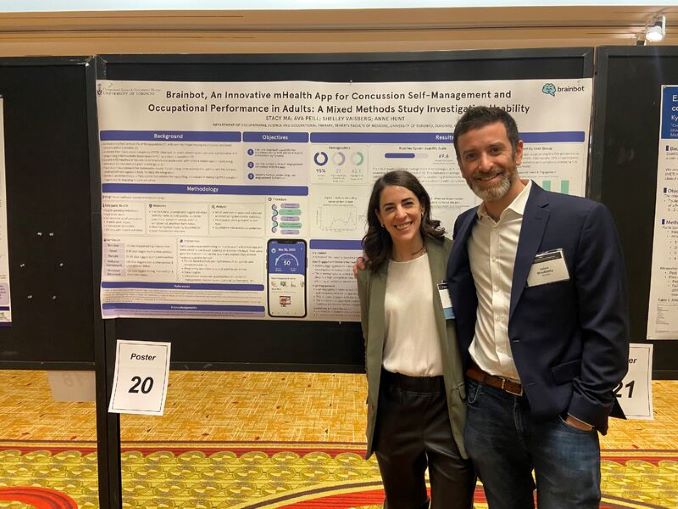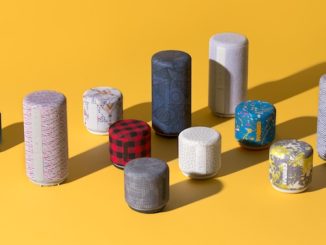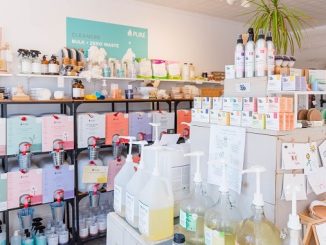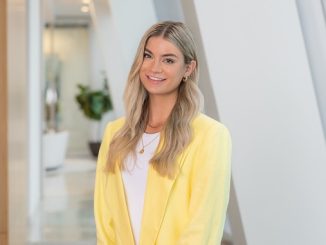This week we had the opportunity to connect with Shelly Vaisberg and Adam Shedletzky of Brainbot. As the world’s first Artificial Intelligence (AI)-powered Concussion Recovery Assistant, their goal is to give people power over their recovery journey. Check out our interview with them to learn more.

What is your business called and what does it do?
Adam Shedletzky: Our business is called Brainbot and it is the world’s first Artificial Intelligence (AI)-powered Concussion Recovery Assistant. Our mission is to empower people to take control of their recovery journey so they can return to everyday activities sooner. Working with leading concussion experts such as Dr. Charles Tator and Dr. Carmela Tartaglia from the University Health Network (UHN) Canadian Concussion Center, we pride ourselves on offering personalized, precise, and evidence-informed recovery tools.
What made you want to do this work?
Shelly Vaisberg: I’ve navigated the world of concussions from both the expert and patient perspective. As an Occupational Therapist (OT) for over 10 years, I saw concussion patients struggle to understand their symptom triggers and how to adapt their day-to-day routine to support their recovery journey. When I had a concussion and Adam was supporting me as my caregiver, we encountered this challenge first-hand which inspired us to create a solution. Brainbot bridges the gap between patients and clinician-vetted resources to support their recovery journey.
What problem did you want to solve with the business?
AS: Shelley’s personal journey through an eight-month concussion recovery made us both acutely aware of the struggles in juggling concussion recovery and daily life. There is a gap in resources and tools to help the patient understand their symptom triggers and find ways to prevent their recurrence. We are looking to address the gap Shelley experienced by offering real-time, personalized insights and strategies for concussion patients to manage symptom triggers and daily activities.
Who are your clientele/demographics?
SV: Our primary users are concussion patients who use Brainbot as a tool and convenient resource to bridge the gap between clinic visits. Our secondary users are clinicians, who can leverage our platform as a window into their patients’ daily challenges, providing rich data analytics and proposing actionable strategies that translate into more impactful treatment sessions.
How does your business make money? How does it work?
AS: In line with our mission to increase access to concussion support, we offer basic access to Brainbot for free. This version includes activity and symptom tracking, weekly level adjustments, educational resources, and basic data analytics. For access to premium features including personalized strategies and weekly insight reports, we offer two payment plans that can be covered by individuals or insurance plans: $39/month or $99/every three months.
Where in the city can we find your profession?
AS: Anyone in Canada can access Brainbot online at www.brainbot.co, but as a business, we are based in Toronto. Currently, we are also working with several research partners located in Toronto including the UHN’s TeleNeuroRehab Centre for Acquired Brain Injury at the KITE Research Institute and the University of Toronto, and we’re running a pilot program with the UHN’s Hull-Ellis Concussion and Research Clinic.
What is the best question a prospective customer could ask a member of your profession when comparing services? Give the answer as well.
SV: When looking for a tool to support concussion recovery, it’s important for patients to assess what is most convenient and accessible to them that can fit into their routines. To positively impact a patient’s concussion recovery journey, the tool also needs to fit your personal needs. I recommend patients ask, “How can this tool be tailored to my needs and specific concussion recovery journey?”
AS: For Brainbot, the answer to this question is that the platform is entirely tailored to a patient’s personal experience. The platform gets to know you through the on-the-go activity and symptom tracker, which helps to monitor and observe your concussion symptoms and triggers. Our proprietary AI then analyzes the data you input into the tracker to provide personalized, clinician-vetted strategies. Based on these insights, the patient can work with their healthcare team to adapt their routines to better support their recovery journey.
What is the best part about what you do? What is the worst part?
The best part about what we do is empowering concussion patients in their recovery journey. It is incredibly rewarding to receive positive feedback from patients who were better able to manage their symptoms through using our platform. The worst part I would say is managing the competing priorities of building a startup while raising our young family. We were recently accepted into the Techstars Healthcare Accelerator which has been an incredible opportunity, but it also means I’ve been away from Shelley and our two daughters in LA for the past couple of months. We’re really looking forward to being reunited soon!
What is your favourite joke about your own profession?
AS: I wouldn’t want to make light of concussions as it touches the lives of many Canadians, but I would instead like to address a common misconception I hear about concussion recovery! Due to outdated guidelines, many people believe any amount of screen time is harmful to concussion patients’ recovery. However, a recent UBC study found that children who had concussions and had moderate screen time recovered faster than those who didn’t. Every patient and their symptoms differ, and that’s why Brainbot works to provide personalized treatment plans that align with the individuals’ everyday activities and routines.
SV: Completely agree – I am very grateful to be building this business together despite some of the hurdles we’ve faced.
Where can we follow you?
AS: For updates on our journey, you can follow me and Shelley on LinkedIn. You can also learn more about Brainbot at: www.brainbot.co
PAY IT FORWARD: What is another local business that you love?
SV: I love Dineen Coffee Company in the East end – they are so kind to our kids (and dogs) and go out of their way to make us feel welcome. They also have delicious treats!




